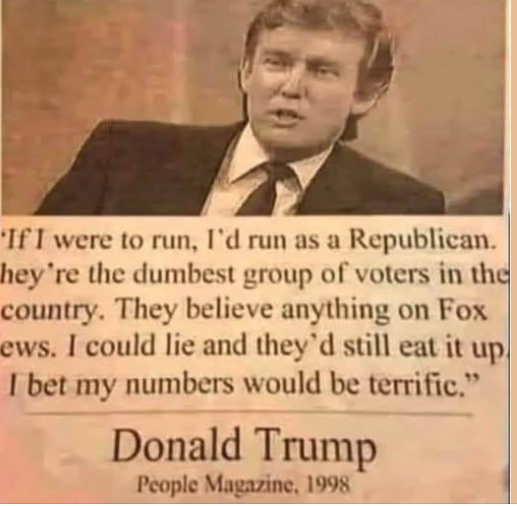Newsmax: What’s Going Wrong?

Trump Wants Rebuild Gaza (should be Trump Wants To Rebuild Gaza)
Hanlde (misspelling of “handle”)
Gender Polcies (misspelling of “policies”)
On our great nations desk (should be “on our great nation’s desk)
At first, I wrote this off as a function of the fact that many of their viewers are functionally illiterate. But then I noticed that their advertisers make precisely zero mistakes; they don’t mind spending a few dollars on editors and proofreaders.
These sponsors may be selling snake-oil food supplements, or sham precious metal hedges against the coming “stock market crash precipitated by Biden,” or the need for “patriots” to buy high-priced off-grid power-generation equipment that is essentially solar panels and batteries, sold to everyone else at a small fraction of the price.
I honestly don’t know what’s going wrong here, but it’s pitiful.
Above is a solicitation to buy shares in Newsmax. I’ll pass.

 What’s a sane reaction to a call for donations like this one?
What’s a sane reaction to a call for donations like this one? Here’s an
Here’s an  This brilliant
This brilliant  I thought this was funny, but in reality, liberals must deal with a ton of ridicule from the right wing.
I thought this was funny, but in reality, liberals must deal with a ton of ridicule from the right wing. What Trump says here is true — and how often can we say that?
What Trump says here is true — and how often can we say that? In this short
In this short 
 We’ve all heard the claim that decarbonizing our energy and transportation sectors will harm the economy. This narrative is critical to the far-right-wing’s claim that environmentalism is anti-capitalist, and, in particular, anti-American.
We’ve all heard the claim that decarbonizing our energy and transportation sectors will harm the economy. This narrative is critical to the far-right-wing’s claim that environmentalism is anti-capitalist, and, in particular, anti-American. Champagne corks are popping in shady businesses that deal with consumer finance.
Champagne corks are popping in shady businesses that deal with consumer finance. The 2024 election showed us how little the majority of woman care about their rights to an abortion. How any self-respecting woman could vote for a party that is actively refashioning the United States into The Handmaid’s Tale, I do not understand.
The 2024 election showed us how little the majority of woman care about their rights to an abortion. How any self-respecting woman could vote for a party that is actively refashioning the United States into The Handmaid’s Tale, I do not understand.